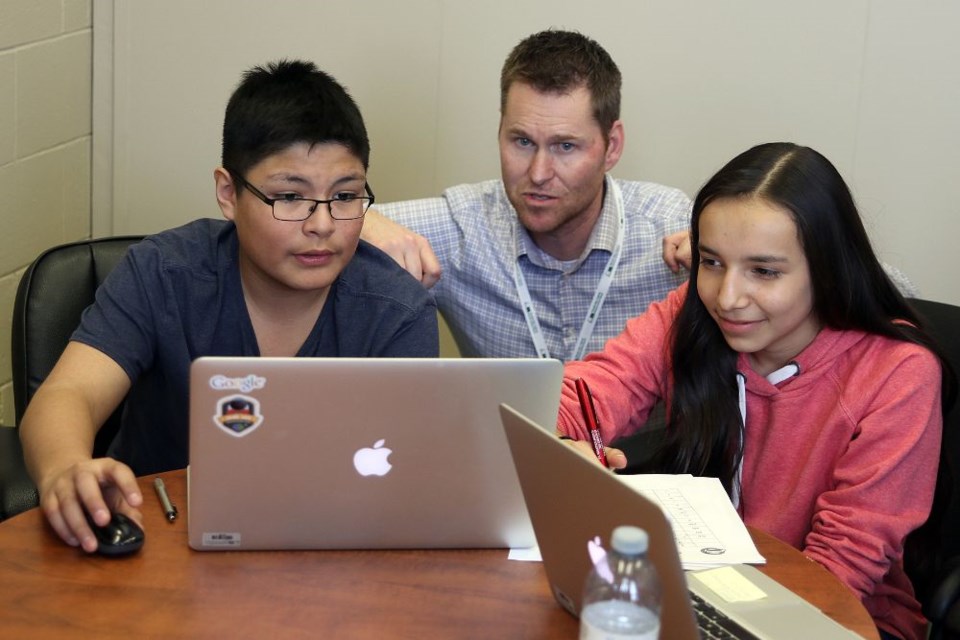What did a local group of Grade 7 and 8 students do when they couldn’t find a keyboard program that allowed them to type in Ojibwe syllabics?
They did what any enterprising group of youngsters might do and set out to create their own.
Mike Filipetti, the principal at Bishop E.Q. Jennings School in Thunder Bay, said the project emerged out of the school’s first-year Native language program. The goal is to create a keyboard that will transliterate Ojibwe words into syllabics, helping students further preserve both their culture and language.
Filipetti said while similar keyboards exist for personal computers, there doesn’t appear to be an Ojibwe version compatible with the Apple computers used at Thunder Bay Catholic District Board schools.
It looked like a perfect learning experience for students and educators alike, he said, explaining why they took on the project themselves rather than outsourcing it to outside experts.
His reasoning for embarking on the project is simple.
“It’s important to preserve the language. Teaching the Ojibwe language (this) is just one more way to enforce it,” Filipetti explained.
“Technology is a big key to any language program, so having the students able to write in their language and document it and save it, I think is extremely important.”
Starting last Tuesday, three hand-picked students will gather for a couple of hours each week to work on the program, named Ukulele 3.0. Much of the work involves deciphering already-existing manuals to figure out create the new keyboard.
It’s a learning experience for everyone involved.
“We just wanted a small group because we don’t really know what we’re doing,” Filipetti said. “We’re working through this together. We’re teaching ourselves and the students the process that even when you’re not entirely sure how to do something it doesn’t mean you can’t try to move forward.”
Twelve-year-olds Gene Medowegean and Rayne Meekis are two of the three students taking part. They’re hoping to leave behind a legacy that can be shared by the entire world.
“It’s my language,” said Rayne, a Grade 7 student at Bishop E.Q. Jennings.
“And it’s really interesting because of the history and the culture and the background.”
The process itself can be a bit of a slog.
“We pulled up the syllabic chart. For each letter we’re doing something different. We drag it from the computer, whatever letter it is, onto the keyboard,” Gene said.
One-by-one they create a new syllabic, or sound.
The alternative is using pre-existing function keys to type in a four-digit code that produces each syllabic.
“That’s a really hard process, because if you want to type a sentence you would have to press 50 different keys,” Gene said.
“We’re doing this so our language wouldn't fade away, which would ruin our culture.”
Sign in or register
- Messages
- Post a Listing
- Your Listings
- Your Profile
- Your Subscriptions
- Your Likes
- Your Business
- Support Local News
- Payment History
Registered Users
Already have an account?
New Users
Create a free account.
